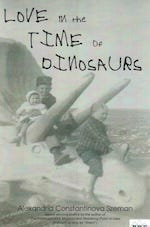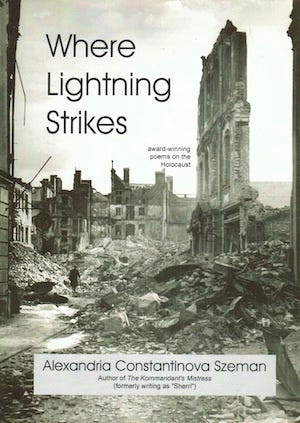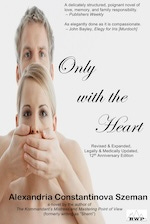Mindfulness & Meditation
What to Do When You Feel Like You Don't Have Enough Time | Mindful
When we align activities with our values, we feel like we have more time. Try this mindfulness practice to align your time with what matters most.
How to Meditate through Exercise | Mindful
Meditating through exercise isn't complicated: You can train the mind and body with the breath as part of any exercise that you already do.
Migraine
Refractory Chronic Migraine: When Regular Treatments Don’t Work | Healthline
If your migraine headache doesn't respond to treatment, it may be refractory. Learn how to manage this debilitating condition.
An Expert Talks About New Research on the Latest Migraine Treatments | Healthline
Neurologist Dr. Susan Lee discusses newer migraine treatments, such as CGRP antagonists, lasmiditan, and neuromodulating devices.
Trauma and Sexual Abuse
The Four Stages of Trauma Recovery | Choosing Therapy
Trauma recovery often occurs in four stages, during which individuals work to re-establish their sense of safety and security, process their traumatic memories, and build hope and resources for the future. These stages are often not linear, but they can provide a framework for healing and support after a trauma.
Journaling About Trauma: Writing to Heal | Choosing Therapy
The effects of trauma live within the cells of our bodies. When we experience one or multiple traumas, we often suppress related emotions to avoid becoming overwhelmed. However, journaling about trauma is an excellent way to release this negativity from the body and mind, thus providing a greater sense of well-being.
Mental Health
Our best mental health tips - backed by research | Mental Health org UK
This guide provides you with our best tips on how to look after your mental health - backed by research.
Podcast: Understanding Codependency: Are You Too Invested in Others? | Psych Central
What is "high functioning codependency"? This episode of the Inside Mental health podcast explores. Listen Now! (or read the transcript)
Books
The Canterbury Tales: A Reading List | Five Books
The Canterbury Tales by Geoffrey Chaucer, late medieval English poet, recommended by his latest biographer, Oxford Professor Marion Turner
Shakespeare's best plays of all time - as voted for by you | Time Out
We asked you to rank all of William Shakespeare's plays in order of greatness. Here's how the top ten turned out
Cooking and Baking
Our Best Mashed Potato Recipes Will Smash Your Expectations | Saveur
Whether creamy and garlicky, or fried in a latke, our best mashed potato recipes are the perfect for your cold-weather cravings.
Simple salads with familiar flavors that are just plain good-with no terrifying surprises!
Ultra-Fudgy Fudge Brownies: Ready in Under 1 Hour! | No Spoon Necessary
Craving brownies that are perfectly fudgy and incredibly rich in chocolate flavor with a gorgeously-glossy crinkle top? This fudge brownies recipe delivers! Made with dutch-process cocoa powder, a dark chocolate bar, and brown butter for a beautifully intense chocolatey taste, these ultra-decadent,...
Subscribe to My Newsletter
The Alexandria Papers Newsletter on Substack presents curated articles on mindfulness and meditation, migraine, healing from trauma and sexual abuse, mental health, books, cooking, and baking. To receive new posts by email and support my work, consider becoming a free or paid subscriber. I'm committed to having the entire archive free, but paid subscribers help cover the costs of research each week.
Author & Social Media Services
Do you need help managing your social media accounts? I have ten years experience managing accounts on major platforms like X (formerly Twitter), BlueSky, Facebook, Instagram, and LinkedIn.
Do you need help editing or proofreading your book? I'm a retired university World Literature and Creative Writing professor, and author of several traditionally and/or Indie published books, with over 20 years editing and proofreading experience with novels, poetry, and nonfiction. Trauma-informed editing. ALLi Partner Member.
Alliance of Independent Authors / ALLi Partner Members: vetted author services that comply with ALLi standards of ethics and excellence.
My Books & Blog: Poetry, Fiction, Memoir
Each morning as we walk the farm’s perimeter,
we find victims of the butcher birds: grasshoppers,
beetles, lizards, frogs, snakes, mice, impaled on cactus
spines, thorns, or barbed wire. Sometimes we see one of the
birds itself, perched on a branch or fence-line, the black
mask around its eyes and hooked beak resembling the
masks of my childhood heroes. My daughter doesn’t
like the look of it, and she doesn’t want it to
shriek: she wants it to sing like other birds. She can’t
understand why I won’t let her take down the bird’s
victims. While I try to explain about nature’s
laws, about marking territory and mating
rituals and survival of the fittest, she
keeps on trying to grab hold of the barbed wire, the
cactus spines, or the thorns, trying to free the dead.
One day, when we come across a grasshopper, still
alive though impaled, his kicking legs frantic, my
daughter becomes hysterical, not believing
there is no chance for him to survive. For the rest
of the day, she is inconsolable. She sobs
over her mashed potatoes at dinner, and then
buries her face against my wife’s neck and shoulder.
In the night, her cries wake us. The murmur of my
wife’s voice, woven with my daughter’s sobs, reaches me
through the walls. Like the hum of my father’s voice through
the walls of my childhood home in the summer of 1969...
The Ghost Walk, a poem
I will die here where I have walked.
And I will walk here, though I am in my grave.
Charles Dickens, Bleak House
There is no doubt that Marley was dead.
This must be distinctly understood, or nothing…
can come of the story I am going to relate.
Charles Dickens, A Christmas Carol
There is a ghost who walks my garden each night, summer or winter, rain or snow, and this ghost causes quite a furor in the village. People look at each other and raise their eyebrows when they see me, they whisper behind their hands when I come into the grocery or the local hardware store, they talk to each other over coffee or tea, sitting in a huddle under the trees at the outdoor summer children’s concert, wondering, no doubt, why I ever moved here in the first place, it’s such a nice village after all, or at least it used to be before I came here with my incessant talk of ghosts.
“One ghost,” a young man interrupts, before withering looks from the others make him stare into his empty teacup as if, instead of its being lined with hand-painted flowers, the faces of spirits, their ghost-hair curiously and incessantly stirred, silently gazed up at him. Very well, the original speaker continues, one ghost, one ghost in particular, a ghost who walks, not in the house like ghosts are supposed to do, but a ghost who walks in the garden of all places. People respected the village before all this talking of ghosts, and outsiders wanted to live here themselves although it is rather expensive what with most of the houses being over 200 years old and costly to keep up.
Of course, everyone knows that ghostly noises are not entirely unheard of in old houses, so surely one can expect bumps and creaks and groans, occasional rustles or whispers, and sometimes even faint music or a hint of singing from a distant room in a house so very old, but before I moved here, no one in the village ever talked openly about seeing ghosts or wraiths or spirits, and certainly no one ever mentioned them in connection with this particular house and garden, so the only logical conclusion, the only explanation that temporarily calms the fears and anxieties of all the listeners gathered in the corner of the parking lot during the weekly farmer’s market is that the ghost must have some unfinished business with me, and though that seems a satisfactory enough explanation to most of them, it doesn’t stop them from silently watching me as I examine the lettuces and tomatoes, or from jumping ever so slightly when I bid them “good morning...”
Heaven and earth, the Celtic saying goes,
are only three feet apart, but in thin places,
that distance is even shorter.
Eric Weiner, "Where Heaven and Earth Come Closer"
for Max or Alex or, maybe, James
Last night I dreamt of you, after all these
years, and you were lying in my arms, in
the middle of the day, the sunlight showing
the first strands of silver in your hair, and
your eyes blue, so blue, heart-poundingly
blue, like something out of a romance novel
only better because, at last, you were mine.
Afterward, in the dream, we walked through
your garden, lush with peonies, pink and red,
heavy with daffodils and yellow roses, and
you showed me the freshly dug corner where
you were going to plant carnations, red and
pink, because they were my favorite. I stumbled
along beside you, wondering that someone as
beautiful as you could actually love me, and
when you kissed me, the sun warm on my
back and you warm and strong in front of me,
bees buzzing faintly behind us, a lush carpet
of violets under our bare feet, the cat rubbing
against our ankles, when you kissed me and
whispered my name, the walls around my heart
crumbled into useless piles of rock and salt.
Last night, I dreamt of you, after all these
years, and of our worst argument...
Love in the Time of Dinosaurs (poetry)
As powerfully written, darkly humorous, surprising, and accessible as Szeman’s prose works, these poems let you glimpse into the hearts, lives, and minds of ordinary people — whether they be mythological, biblical, literary, or contemporary — as they struggle to make sense of relationships, family, marriage, divorce, children, spirituality, faith, and the existence of God. As they struggle to comprehend the very things each of us experiences every day.
Awards:
• Grand Prize Winner, Elliston Poetry Prize
• Isabel & Mary Neff Creative Writing Fellowship
• First Place, Elliston Poetry Prize
• Second Place, Elliston Poetry Prize
• Centennial Review Prize for Poetry
• Honorable Mention, Non-Rhyming Poetry,
Writer’s Digest Creative Writing Contest
The Kommandant's Mistress (a novel)
Part One: The Kommandant
For who can make straight that
which He hath made crooked?
Ecclesiastes 7: 13
Chapter One
"Then I saw her. There she stood, in the village store, her hair in a long braid down the center of her back, her skin white in the sunlight, and my hand went to my hip, seeking the weight of my gun. As the girl spoke, I stumbled back against one of the shelves, my fingers tightening at the leather around my waist. While the shopkeeper arranged the food in the bag, the morning sun glinted on the storefront windows, illuminating the girl. The wooden shelves pressed into my shoulders and back. Sweat dampened my forehead and ribs. Another shopper spoke, frowned, pushed aside my arm to reach a jar on the shelf behind me, but I didn’t move. My hand slid down over my hip and leg. No, I’d forgotten that I no longer wore my gun..."
About The Kommandant's Mistress
The rumors spread by the Camp’s inmates, other Nazi officers, and the Kommandant’s own family insist that she was his “mistress,” but was she, voluntarily? Told from three different perspectives – that of the formerly idealistic Kommandant, the young Jewish inmate who captivates him, and the ostensibly objective historical biographies of the protagonists – this novel examines one troubling moral question over and over: if your staying alive was the only “good” during the War, if your survival was your sole purpose in this horrific world of the Concentration Camps — whether you were Nazi or Jewish — what, exactly, would you do to survive? Would you lie, cheat, steal, kill, submit?
Flashing back and forth through the narrators’ memories as they recall their time before, during, and after the War, and leading, inevitably, to their ultimate, shocking confrontation, “Szeman’s uncompromising realism and superb use of stream-of-consciousness technique make [this novel] a chilling study of evil, erotic obsession, and the will to survive” (Publishers Weekly, starred review).
A New York Times Book Review “Notable Book” and one of its “Top 100 Books of the Year,” Winner of the University of Rochester’s Kafka Prize for “the outstanding book of prose fiction by an American woman,” the tales told by the Kommandant, his “mistress,” and their “biographer” will mesmerize and stun you, leaving you wondering, at the conclusion, which, if any, is telling the complete truth about what happened between them.
Awards:
• New York Times Book Review “Top 100 Books of Year”
• New York Times Book Review “Notable Book”
• University of Rochester Janet Heidinger Kafka Prize
“the outstanding book of prose fiction by an American woman”
• Publishers Weekly starred review: “Outstanding Merit”
• Talmadge McKinney Award “Excellence in Research”
(1st edition published by HarperCollins / HarperPerennial NYC; 2nd edition published by Arcade, NYC; 20th Anniversary Edition published by RockWay Press)
Where Lightning Strikes: Poems on The Holocaust
Where Lightning Strikes includes all Szeman's Holocaust poetry, from the poems featured in her Ph.D. dissertation Survivor: One Who Survives, to the original versions of "Rachel's poems" appearing or mentioned in Szeman's award-winning, critically acclaimed first novel The Kommandant's Mistress. The poems in this collection revisit the classic themes that have inspired poets for generations: love, passion, betrayal, doubt, loyalty, despair, faith, and survival — this time in the context of the period before, during, and after the Holocaust with its systematic persecution and extermination of the majority of European Jewry by the Nazi regime.
Along with her non-Holocaust poetry collection, Love in the Time of Dinosaurs, this volume, Where Lightning Strikes, was unanimously accepted for publication by all outside readers of UKA Press. Szeman's themes, though set, in this collection, around the Holocaust, are universal, encompassing the perpetrators', victims', and survivors' perspectives equally insightfully. As powerful, unsettling, and lyrical as her first novel, The Kommandant's Mistress, these poems will take you on a compelling, chilling, and unforgettable journey into the lives, hearts, and minds of all those who were in the Holocaust.
Awards:
• Grand Prize Winner, Elliston Poetry Prize
• Isabel & Mary Neff Creative Writing Fellowship
• First Place, Elliston Poetry Prize
• Second Place, Elliston Poetry Prize
Only with the Heart (a novel)
Part One: Claudia
Doubts are more cruel
than the worst of truths.
Molière
Chapter One
They got there sooner than I expected. I was waiting at the upstairs window, so I saw them when they arrived, their lights flashing, their sirens silent. There were two policemen, in two separate cars, and the paramedics in the ambulance. As they got out of the vehicles, the emergency lights turned everything a strange, pulsing red: the snow, the ice at the edge of the window, the bedroom where I stood. They slipped across the yard on their way to the front porch, their breath hanging white in the air. As they rushed up the front steps and disappeared from my view, I let go of the lace curtain and turned around to look at the body. I suppose I should’ve gone over to the bed and closed its eyes or covered its face, but I couldn’t make myself do it.
The squad stopped at all the other bedrooms on the floor before they found the right one. When they saw me and the body, they rushed in, plying stethoscope, oxygen mask, and blood pressure cuff, calling out to each other in their own telegraphic language. Their hands rushed as quickly as their words, but none of that made any difference. There was no life left in that body. There hadn’t been for ages.
All that time, I didn’t move or make a sound. When the policeman came over to me, he had to put his hand on my arm to get me to look at him. It was almost as if I were the one who was dead.
And to think that was only the beginning...
About Only with the Heart
When Claudia Sloane is arrested for the murder of her mother-in-law, everyone is stunned, especially her husband Sam. Claudia loved Eleanor as if she were her own mother and would never have hurt her. At least, that’s what Claudia insists. But even Sam begins to wonder how far Claudia would go in the name of love: did she help the terminally-ill Eleanor commit suicide?
During the widely publicized trial, Sam tries desperately to maintain his belief in his wife’s innocence despite the mounting evidence against her. Meanwhile, Claudia unwillingly begins to suspect that Sam may have helped his own mother commit suicide, but is letting his wife risk conviction for the murder.
Gripping and suspenseful, compassionate yet unflinchingly honest, Only with the Heart deals with the dreadful effects of terminal disease on its patients and their Caregivers, explores our primal need for acceptance and family ties, and examines the complex and evolving nature of love.
"Piercing, close-to-the-bone fiction." -- Barnes & Noble
"Bold and ambitious." -- San Francisco Mercury News
"[A] delicately structured, poignant novel of love, memory, & family responsibility." -- Publishers Weekly
(First edition published by Arcade, NYC; 12th Anniversary Edition, Revised & Expanded, Legally & Medically Updated, published by RockWay Press)
My Other Books
Get my ebooks on Amazon: Read free with Kindle Unlimited













































